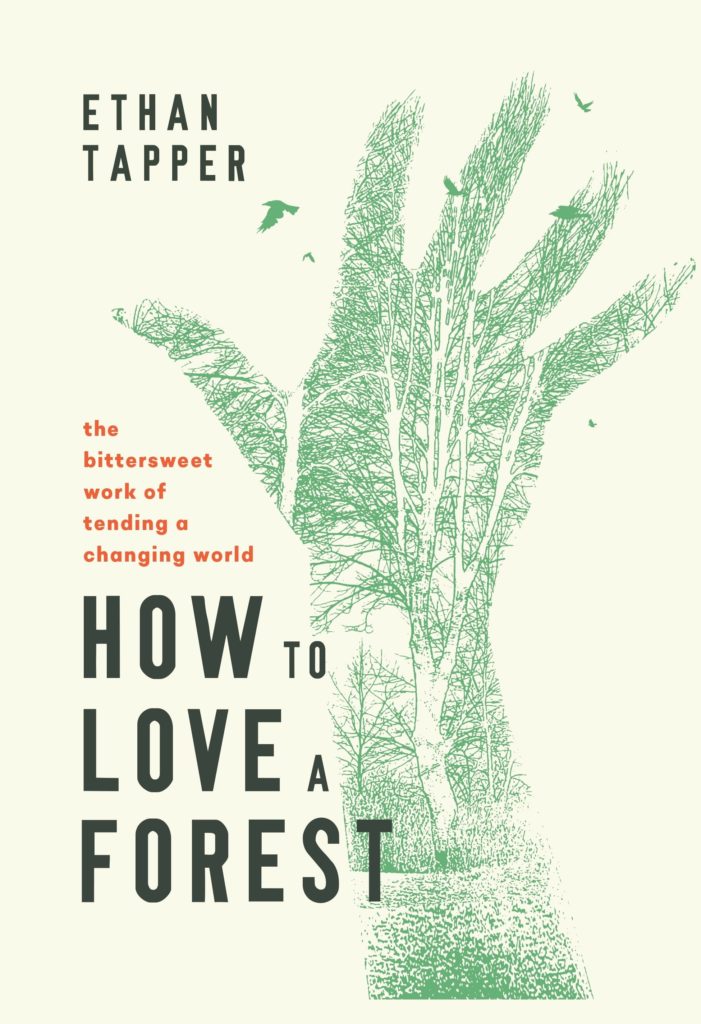“How To Love A Forest” is a new book by a Guild member

Book available for pre-order now at https://ethantapper.com/book
Written by Jack Singer
Ethan Tapper’s How to Love a Forest should be required reading for every North American forestry professional seeking to make sense of degraded and declining forest ecosystems. Tapper begins by grounding his work in his own hard-earned experience as a forester. He relates the landscape of his life to glacial time and geological processes that shaped the Vermont forests he must now learn to love. He breathes life into each page with vivid imagery from the long days and seasons he has spent alone in the woods, and he colors in the workdays for the reader with insightful observations of the local plants and wildlife, and how they respond to his management of the forest he shares with them on Bear Island. As his days stretch into seasons and the years accumulate, Tapper expertly communicates the fleeting melancholy and nostalgia that every naturalist who comes of age during the 21st century’s biodiversity crisis is forced to confront.
As the pace and scale of these intersectional crises – climate change, income inequality, mass extinction – accelerate, foresters around the continent are inevitably faced with the complex set of variables and choices that Tapper faces unafraid in this book. By artfully weaving together natural history, indigenous wisdom, ecological trends, and global projections in such an approachable way, How to Love a Forest unapologetically challenges the reader to respond to these challenges by looking beyond our preconceived notions. According to Tapper, we need to let go of what we think forests ought to be or how we think they ought to benefit our human society, and instead consider the intrinsic value of these mysterious ecosystems.
It’s clear that Tapper was led to this work with his heart, but the intellectual research that underpins his writing on these topics allows him to move beyond the big, relatable emotions to create a truly valuable narrative. In a time of unprecedented ecological decline and rapid global change, forests and their caretakers are more important than ever. How to Love a Forest disavows us of false ecological dichotomies – timber harvest versus forest conservation, degradation versus restoration, decline versus rebirth – and instead recognizes that many of these processes, even those that cause us initial discomfort as human beings or foresters, must all coexist on a single forest property for the whole to function with integrity and resilience. Perhaps paradoxically, the author’s greatest and most memorable acts of love also seem to cause him the most personal pain and discomfort. By baring this all out with uncharacteristic vulnerability, Tapper ultimately succeeds in expressing that all foresters are now called upon to make impossibly difficult choices about forests and everything that they represent, even when the answers may be shrouded in culturally ingrained fear and taboo. This universal teaching is something that all foresters should take to heart, now more than ever.
Editor’s note: How to Love a Forest will be published in September, 2024. Pre-orders are tremendously helpful for overall success and are appreciated. For those who’d like to own a copy, preorder your book today. Thank you to Guild members Ethan Tapper, for sharing this incredible work, and Jack Singer, for reviewing it for us.
